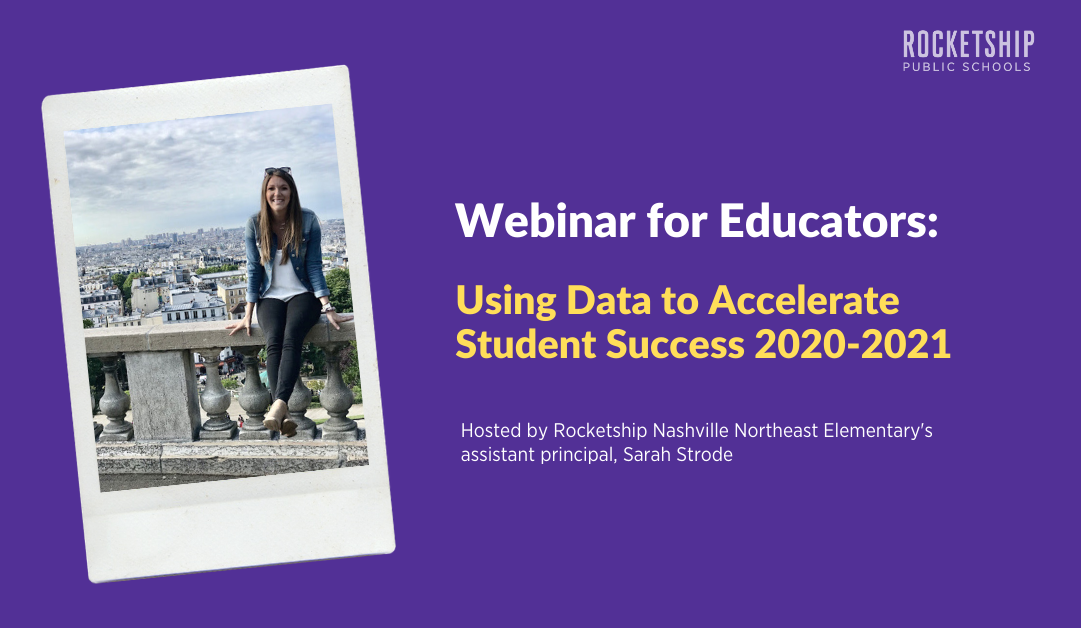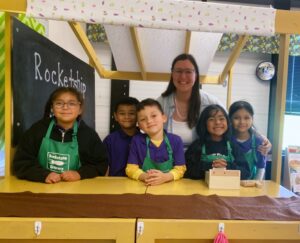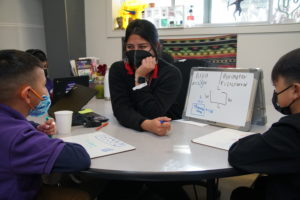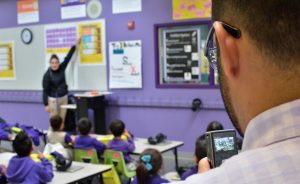
3 Takeaways from the “Using Data to Accelerate Learning” Webinar
By James Cross, 4th Grade Teacher, Rocketship Nashville Northeast Elementary
There’s a widespread narrative used across our country that schools have been closed. You see across the news and social media. As a teacher, I appreciate that our schools and education system are getting so much attention. However, the issue I see is people aren’t talking about how to improve or better fund schools, they’re talking about how it’s “time teachers get back to work.” Personally, I disagree with this narrative because learning is still happening both virtually and in the buildings. It doesn’t necessarily look the same as it has in years past, but students are learning.
I was excited to attend this webinar on Using Data to Accelerate Learning because data is going to be a huge factor in how we respond to the current events impacting our education system. I’m a firm believer that family engagement and student relationships are the secrets to academic success. Once you have the relationships, however, intentional use of data is the next key step. Data is going to tell us what are our students need additional support with and where we should focus our time. No matter how you feel about student data, it will always be a foundation of education.
During this webinar, Ms. Strode provided the quintessential refresher I needed to boost my instruction for the remainder of the year. She reminded us that our students will always be more than a number and that the best approach to teaching is making it as personal as possible. She also provided this helpful downloadable resource guide!
Here are three things I took away from the webinar:
1. We are still responsible for collecting data.
Educators are master collectors of data. We collect data formerly and informally and it often lingers in the back of our minds. Generally, we gather data to determine class trends and inform our daily lessons. We collect this data through multiple methods. Ms. Strode calls this process determining the data.
You have to start by understanding what data is available to you and what data you still need to collect. Formative data, observational data, benchmarks, state assessments, and common assessments are all a part of this process. My school prioritizes collecting data from multiple sources and at numerous times throughout the year. This process looks a little different this year, but most of our methods remain intact.
If you’re not sure where to start, begin by looking at what you are already doing. Do you have exit ticket data, quizzes, or progress monitoring reports available? If not, your next step is to incorporate an opportunity to collect some data. Start with your learning standards or end-of-year goals. Once you have some data, you can move to the next step.
2. Personalize your students’ data.
Once you have determined which data you need and took the time to collect it, it’s time to unpack it! Normally, our first step is to uncover class trends and integrate those needs into our daily lessons. The challenge is that some of our students are going to transcend those class trends. Your data needs to be personal. It’s now absolutely essential that we dig deeper into student data and determine the individual needs of our students.
Ms. Strode calls this process naming the need. This is your opportunity to get maniacal about the data you are analyzing. Break down the content that you are teaching:
-What exactly do your students need to know? Tear apart each and every question that your students answered.
-What exactly do students need to know and do to correctly answer that question.
-Finally, consider what you know about your students. What are their individual learning styles and how did they perform on each question?
I’m not going to sugarcoat this- this is a tedious process. It is going to take time to hone in on each student. It will be worth it, though! Once you have named your students’ needs, you will be able to target those needs directly.
3. Plan an approach that adjusts the course for each student.
Data collection is great. Personalized and individualized data is even better. None of it matters, however, if you don’t adjust the course based on what you learned about each student. This is where building relationships with your students will pay off.
You need to decide what specifically you are going to do with this data. You might need to integrate interventions based on data groupings. This could be a time to conference with families and set a shared plan to own this process together. At the same time, it may just mean you need to target these students when you are engaging in a whole group lesson. You know your students and what they will respond to best- trust yourself.
At the end of the day, learning isn’t lost- learning just needs a new focus. Refocusing on our roots and trusting in the data will help us accelerate our student learning. Data-informed instruction has proven to work and will continue to work if we are intentional.
Curious to learn more? Watch the full webinar below! Don’t forget to sign up for our next Teacher PD Launchpad webinar, Finishing Strong: Building habits to set your students up for success for summer and beyond!
Published on March 15, 2021
Read more stories about: Uncategorized.
Back In The Classroom
How This 5th Grade Teacher Brings Positive Role Models into his Classroom
Featuring Brandon LaBella, 5th Grade Teacher, Rocketship Spark Academy | March 1, 2023
In this 30-minute chat, you'll hear what keeps this teacher motivated, the power of relationships, and how he brought in speakers to discuss career paths and life perspectives.
Read more ⟩How to Spark Joy in ESL Classrooms with a Multilingual Learning Clubhouse
Featuring Ms. Amy De La Rosa, Multilingual Specialist, Nashville Northeast Elementary | June 1, 2023
Listen in to an audio interview with Amy De La Rosa, a Multilingual Specialist who has worked as an educator for over 14 years and found an innovative way to help her students learn English in a more accelerated, playful way.
Read more ⟩Supporting Parents of Multilingual Students in Family/Teacher Conferences
Emma Volpe, Rocketship United Academy | June 1, 2022
Get thoughtful insight on how to create a more inclusive family-teacher conference environment.
Read more ⟩5 Ways to Strengthen Relationships in the Classroom
James Cross, Assistant Principal, Rocketship Nashville Northeast Elementary | February 20, 2022
A new age of education calls for a new level of connection. Here are some key tips to strengthen relationships in your classroom this school year.
Read more ⟩How BurnIn Mental Strategies Can Improve an Educator's Experience
Rocketship Public Schools | February 21, 2022
Learn how teachers use BurnIn mindset strategies to focus on strengths, deepen relationships, and navigate challenging times.
Read more ⟩5 Ways School Leaders Can Coach and Support Teachers
Eesir Kaur, Director of Professional Development | October 15, 2020
Are you a school leader looking to coach your teachers more effectively? Here's what works for us.
Read more ⟩









